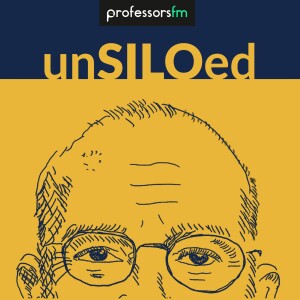
356. Epicureanism and Its Modern Relevance feat. Emily Austin
 2023-11-13
2023-11-13
In this episode, we unravel the misunderstood philosophy of Epicureanism. Don't be fooled by common misconceptions - Epicureanism isn't just about hedonism. It's about a balanced pursuit of tranquility, ataraxia, and the good life.
Emily Austin is a Professor of Philosophy at Wake Forest University and the author of Living for Pleasure: An Epicurean Guide to Life.
Emily and Greg compare and contrast Stoicism and Epicureanism, two philosophies with differing views on virtue and happiness. Discover why modern Stoicism has drifted from its ancient foundations and how the life of Seneca may have twisted his philosophy. Emily and Greg also break down the significance of shared meals in Epicurean tradition, discussing the peculiar competition around extravagance and the possible elitism attached to it. They also discuss Epicurus' methods to mitigate the fear of death and the complexities of living unnoticed in our modern, hyper-connected world.
*unSILOed Podcast is produced by University FM.*
Allegiances are central to friendship
32:37: As an adult, it's fascinating, right? When somebody starts to have some success, people basically almost pretend they don't know you. Will be like, “Hey, let's go out for a drink,” right? But given the finite amount of time and energy we have, you go out for a drink with that person, and you're neglecting a friend who's been trustworthy. And so you can start seeing some of this sort of shifting allegiances, even in adulthood. It's fascinating. So, those are the things that I think for Epicurus are central to friendship. But then once you have those things, you enjoy all these extravagances together, and those friends are there for you during times of need, and you have all these wonderful memories with them. Even when you find yourself dying, you don't feel like you're going to be abandoned.
What sets Stoics and Epicureans apart?
18:10: One of the big differences between the Stoics and the Epicureans is that the Epicureans avoid politics. And the Stoics think it's a demonstration of your masculinity, and your excellence to participate in politics.
Friends don’t make friends anxious
30:16: There is this kind of view about extravagances, and this way that we internalize kinds of status pulls us away from having meaningful relationships. It produces anxiety to see your friends, right? And then, I think that it is true for Epicurus too, like just in the general sense that friends don't make friends anxious. As I have it in the book, the two most important things for having a good friend are trust and a shared sense of fundamental values.
Epicurus thoughts on desire
24:13: One feature of a desire like that is that it's never satisfied because there's always more. And Epicurus thinks tranquility is a kind of satisfaction. It's being satisfied with having what you need. So if you have these desires, he thinks you're always going to be dissatisfied. Then they're competitive, so you're going to alienate people, and if you care a lot about them, then you're going to commit injustice, and that's going to cause anxiety. Or you'll become like a lackey or a bully to get them more, and that will again cause anxiety and alienate you. And so he thinks you should cut those out entirely. So necessary ones, get them, focus on them, their priorities, and then pursue the extravagances as they come along, and often those will be the most memorable experiences of your life. So, for various reasons, including the role of memory and his coping with misfortune, he wants you to pursue them the right way.
- Epicureanism
- Lucretius
- Hedonism
- Ataraxia
- Hedonic treadmill
- Hyperbolic discounting
- Stoicism
- Seneca the Younger
- Nero
- Lonesome Dove
- Wake
- Athenaeus
- Faculty Profile at Wake Forest
- Professional Portrait by Wake Forest
- Amazon Author Page
- Living for Pleasure: An Epicurean Guide to Life
More Episodes
Create your
podcast in
minutes
- Full-featured podcast site
- Unlimited storage and bandwidth
- Comprehensive podcast stats
- Distribute to Apple Podcasts, Spotify, and more
- Make money with your podcast
It is Free
- Privacy Policy
- Cookie Policy
- Terms of Use
- Consent Preferences
- Copyright © 2015-2024 Podbean.com






